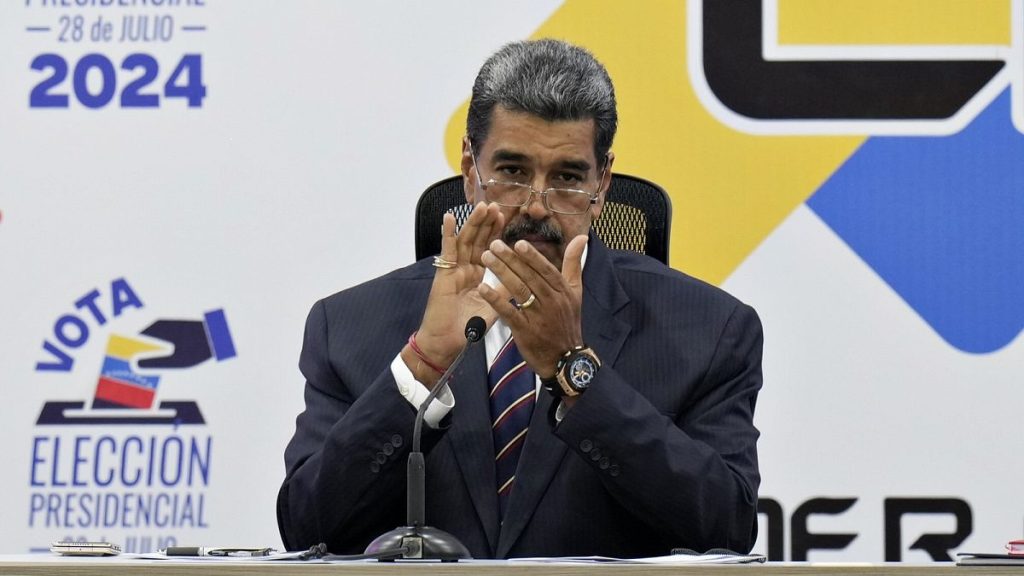The European Union has expressed concerns over the irregularities in Venezuela’s presidential election and called for greater transparency to determine the true winner. While the National Electoral Council has declared incumbent Nicolás Maduro as the winner, the opposition candidate Edmundo González disputes the results, stating that he has proof of a victory. The aftermath of the election has seen an increase in tension as protesters clash with police, with many opposition supporters seeing this as an opportunity to end single-party rule in the country. Maduro has accused the United States of attempting to impose a coup d’état in Venezuela.
Hungary’s veto blocked a joint EU statement denouncing the irregularities in the election, prompting Josep Borrell to release his own statement calling for transparency in the tabulation of results. The EU statement listed several concerns, including arbitrary detentions, intimidation of opposition members, deficiencies in voter registration, and imbalanced media access. The lack of detailed results from each precinct has also raised questions about the legitimacy of the election results. The EU has urged calm and called on security forces to respect human rights, including the right to peaceful assembly.
Calls for new sanctions against Venezuela are considered premature at this stage, as discussions among member states continue. The EU is engaging with national, regional, and international partners to assess the situation and determine potential next steps. The current EU penalties against Venezuela date back to 2017 and include a ban on exporting weapons and equipment used to repress street protests, as well as a blacklist of individuals accused of undermining democracy and the rule of law in the country. The veto by Hungary on joint statements regarding Venezuela and the Kremlin’s media ban may hinder future efforts to impose stronger sanctions on Maduro’s regime.
González and his political alliance, the Unitary Platform, have claimed victory in the election, citing tally sheets that show a significant lead over Maduro. The opposition argues that the official results released by the CNE do not match opinion polls and statistical estimates. The electoral process has faced criticism for various obstacles and unequal conditions, including the intimidation of opposition members and deficiencies in voter registration. The EU has called on the CNE to release detailed results from each polling station to ensure the legitimacy of the election outcome.
The aftermath of the election has seen an increase in tensions, with protesters taking to the streets and clashing with police. Opposition supporters view the election as an opportunity to end single-party rule in Venezuela, while Maduro has condemned the protests as an attempt to impose a coup d’état in the country. The EU has urged both sides to remain calm and respect human rights, including the right to peaceful assembly. The lack of transparency and accountability in the election process has raised concerns about the legitimacy of the results, prompting the EU to call for greater transparency in the tabulation of results.
While the election was hailed as one of the most peaceful in recent memory, the controversy surrounding the legitimacy of the results has created a tense atmosphere in the country. The EU’s decision to denounce the irregularities in the election, despite Hungary’s veto, reflects a commitment to promoting democracy and human rights in Venezuela. The ongoing discussions among member states and interactions with international partners suggest a coordinated effort to address the political crisis in Venezuela and find a peaceful resolution to the situation.


